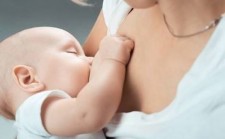 At the American Council on Science and Health, we have been keeping our eyes on Denmark's Dr. Phillipe Grandjean and the Harvard School of Public Health for quite some time now.
At the American Council on Science and Health, we have been keeping our eyes on Denmark's Dr. Phillipe Grandjean and the Harvard School of Public Health for quite some time now. He has a long and well-deserved reputation of being in the forefront of "toxic terror" campaigns based on his cohort studies of pregnant women, newborns and pre-schoolers in the North Atlantic's Faroe Islands and their dietary intake of mercury-laden whale meat.
Using these data, he has launched and promulgated generalized anxieties about all sorts of fish in our diets as potentially toxic, and more recently has become a devotee of warning nursing mothers about potentially toxic chemicals in breast milk.
Dr. Grandjean enlarged his audience for scare "studies" in a piece published in Lancet Neurology with that other shining light of environmental chemophobia, Dr. Phillip Landrigan of Mt. Sinai Hospital in New York. In 2014, they co-wrote a piece of thoroughly baseless speculation about the rise in autism and related neurological ailments in children, noting that around the same time the presence of certain "chemicals of concern" and inferring a cause-and-effect role for them.
We castigated that screed here, but we were far from the only ones who noted the absence of science in that scare piece (perhaps the authors' association with the alarm-themed Environmental Working Group had something to do with it?).
Now, Dr. Grandjean has co-authored a small study. (Although you might not know how small just by reading Harvard's press release on it. Meanwhile, about six paragraphs in, the title trumpets the import of this inane study thusly: "Breastfeeding may expose infants to toxic chemicals"). Of course it does! But only if any chemical ingested by a nursing mother at any amount is considered "toxic." In the current study, 81 Faroe Island newborns and toddlers had their levels of perfluorinated alkylated substances (PFASs) tested at intervals beginning at age five months until five years of age (the birth levels were estimated only). PFASs are found in many household products and consumer goods, mainly in nonstick surfaces such as cookware.
Here's a synopsis of the findings, and its ramifications, as elucidated by a science-journalist Tara Haelle writing in Forbes.com: "How Toxic Is Your Breastmilk?"
First, what did Grandjean and his colleagues actually find? They found that the build-up of PFASs in children’s blood increased by 20% to 30% for each additional month of exclusive breastfeeding... But here’s the thing: the study is very small and very geographically limited: the researchers tracked just 81 children living in the Faroe Islands and tested their PFAS blood levels when the children were 11 months, 18 months and 5 years old...But that’s one small population — in an island nation, much less. Dr. Henry Farrar, a clinical pharmacologist at Arkansas Children's Hospital, added this: 'More studies need to be done in other groups of women before there can be concern that the risks outweigh the benefits of breastfeeding. Currently there are very few circumstances in which the risks of exposure of an infant to chemicals in breastmilk outweigh the many benefits of breastfeeding.'Further, the data we have on PFASs and their effect on humans is sparse and inconsistent — and the risks appear quite modest. Although Grandjean provided a hefty list of concerns that these compounds have been linked to, the epidemiological evidence base in humans shows small and inconsistent effects in those populations with the highest levels of exposure, such as industrial workers in manufacturing plants and communities near industry who consumed contaminated drinking water.
Another commentary on this study, by Dr. Tracy Cassels, can be found at the Evolutionary Parenting site, from which I will only excerpt a brief section of a long, well-written dissection of the Grandjean article.
In it, she asks and answers this question: "If the findings hold, shouldn’t we limit breastfeeding or at least the promotion of it, as suggested by Dr. Grandjean? No, not at all, and there are a couple reasons for this. First and foremost, the hypothesized concern in terms of PFAS exposure is with respect to immune function based on research on the uptake of certain vaccines[2]. However, as we know from myriad other studies, immune function is improved with extended breastfeeding."
Not only that, I should emphasize that the PFAS/vaccine study cited by Dr. Grandjean and dismissed by Dr. Cassels was written by none other than Dr. Grandjean himself, and had been roundly criticized in the scientific arena (including by us!).
Dr. Cassels goes on to list about six other objections to the study and/or its conclusions as trumpted by Dr. Grandjean and Harvard.
Here's Dr. Cassels' conclusion: Perhaps most importantly, the researchers did not measure any level of immune functioning or health outcomes in the children of interest. This means that the red flags being waved about the increases in these levels are purely speculative and based on equally questionable research looking at antibody responses to two specific vaccines. It is a case in which the findings seem to be oversold, especially when there are public declarations against breastfeeding which also happens to counter tons of other research on the immune-benefits of breastfeeding.





Comments